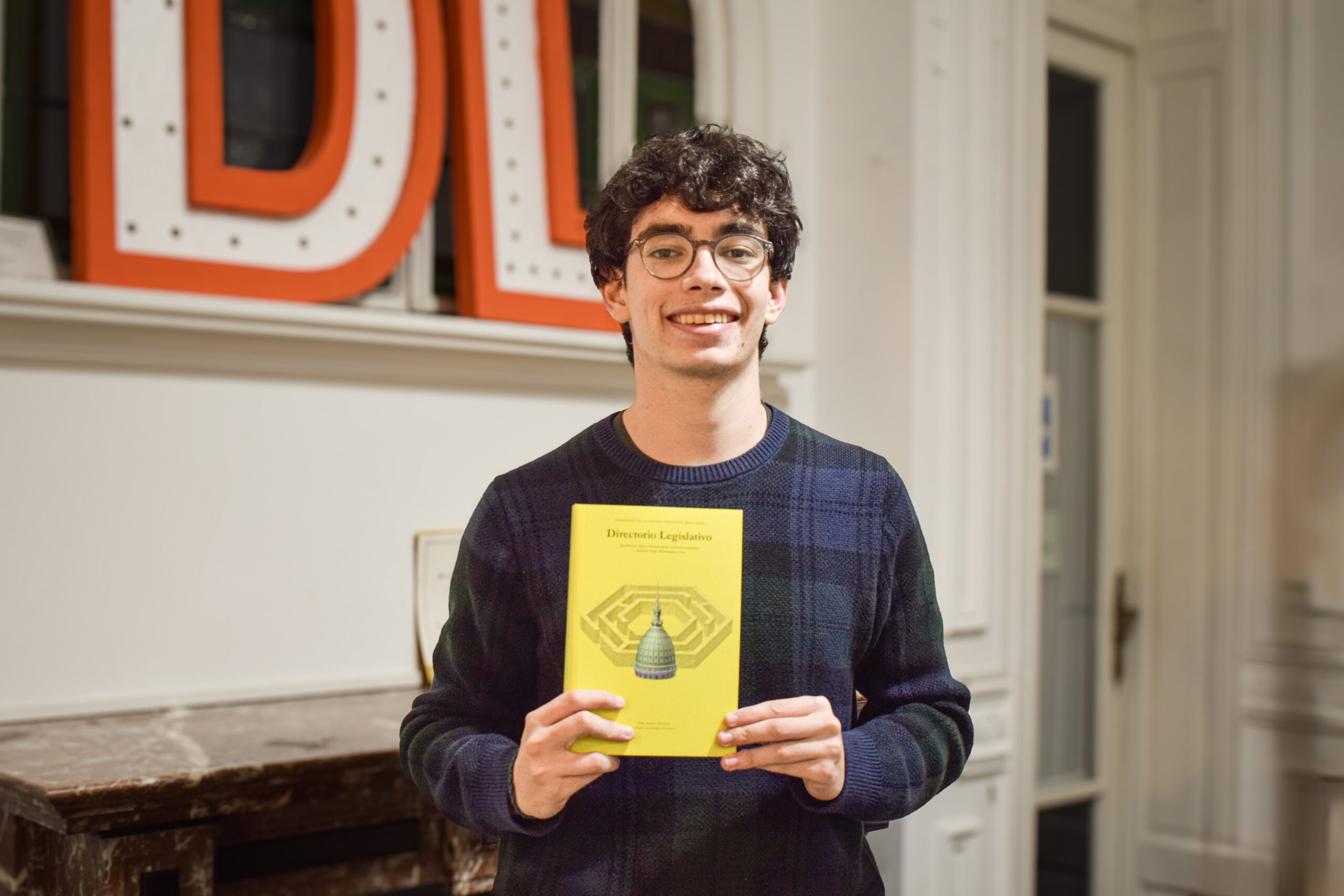Reliving the presentation of our DL Argentina through the eyes of Ben, our intern from the USA

By Benjamin Patron
It was surreal; within my third day of interning at Directorio Legislativo, I was to attend the presentation of the “Directorio Legislativo de Argentina” for the 2024-2025 period at the National Congress building. I could barely contain my excitement as my colleagues and I walked to the venue. We passed el “Monumento de los Dos Congresos” and the massive rotunda looming overhead. Near the entrance, demonstrators surrounded Congress, handing out flyers, chanting, and beating drums. There was a particular fervor in their support of the following day’s bill, one I had never seen before. In my limited time in Argentina—now amounting to only a week—I have already learned that Argentines are deeply passionate; they take pride in their mate, their asado, their fútbol, and most importantly (and perhaps most vocally) their government. The energy I felt entering the building that evening is something I have seen within all Argentinians I have come across so far. Unlike my home country of the United States, public opinion of politics here appears intensely personal; it lacks the reactionary, somewhat detached character of American activism. I have found this difference quite striking. Argentine people—as I’ve seen with the determination and enthusiasm of the team at DL—not only care about their government but are willing to actively fight for its future.
Gradually, guests began to flood into the reception room, and after a couple minutes of showing off the books and conversing, we all filed into the auditorium for the discussion panel. I sat and prepared my notebook. A prevailing theme among the experts and members of Congress was that of Directorio Legislativo’s purpose, one most aptly characterized by the program’s director Maria Baron in her closing remark of “transparency, but for what?” As I learned during the night’s event through listening to the panel and speaking with others, parliamentary monitoring is much more than just publicizing information; the practice is ultimately a mechanism in which to hold legislative representatives accountable. The success of this system, however, relies on collaboration between the public and the PMOs. Both groups must be invested in order to achieve an effective partnership in regulating Congress. Organizations such as Directorio Legislativo provide the knowledge and resources to empower citizens, and the citizens must then use said knowledge to question, challenge, and dissent from legislative powers. From my perspective, I most definitely saw an eagerness to do so from those in attendance. Through the conversations I had at the reception prior to the panel to the question and answer section afterwards, those in attendance were clearly excited about utilizing DL’s new parliamentary directory. I watched as people looked curiously through the printed directories, discussed the difficulty of individual liberty within this process, and as members of Congress and their constituents communicated in a candid, direct manner. This desire for openness amazed me. Exchanges such as this would be highly unlikely in the United States. U.S. voters tend to be concerned with information as it pertains to their own cause—transparency is never for transparency’s sake. With unique obstacles of partisanship and misinformation, I wonder how PMOs may be better implemented in the States. Regardless, the cooperation and dedication I witnessed at the presentation of the newest “Directorio Legislativo de Argentina” was promising.
Professional experience aside, the opportunity to view political activism from a new perspective has been invaluable. I may have only been in the country for only a couple days, but my time interning has already inspired me. To some degree, I believe I have already adopted the political intensity present in Argentina. As I told my superiors after the presentation, I will never forget this evening with Directorio Legislativo. I left Wednesday’s event impassioned and excited for the future of my work here in Argentina.
